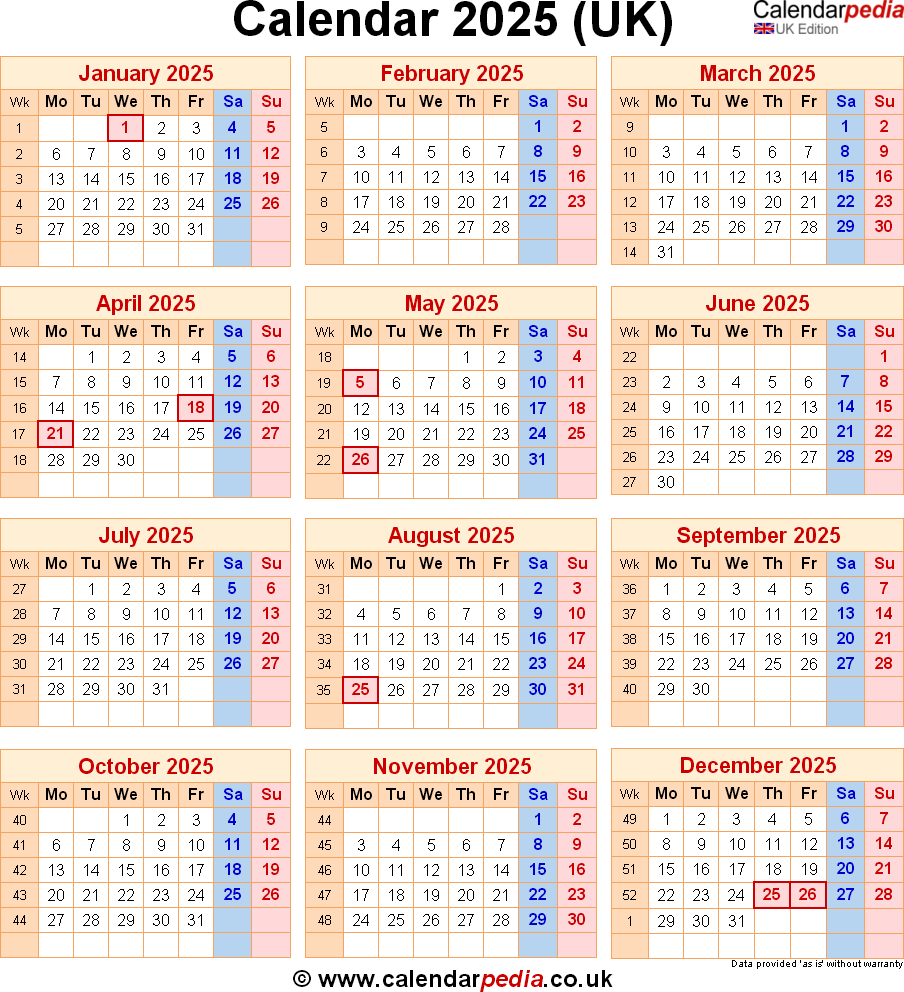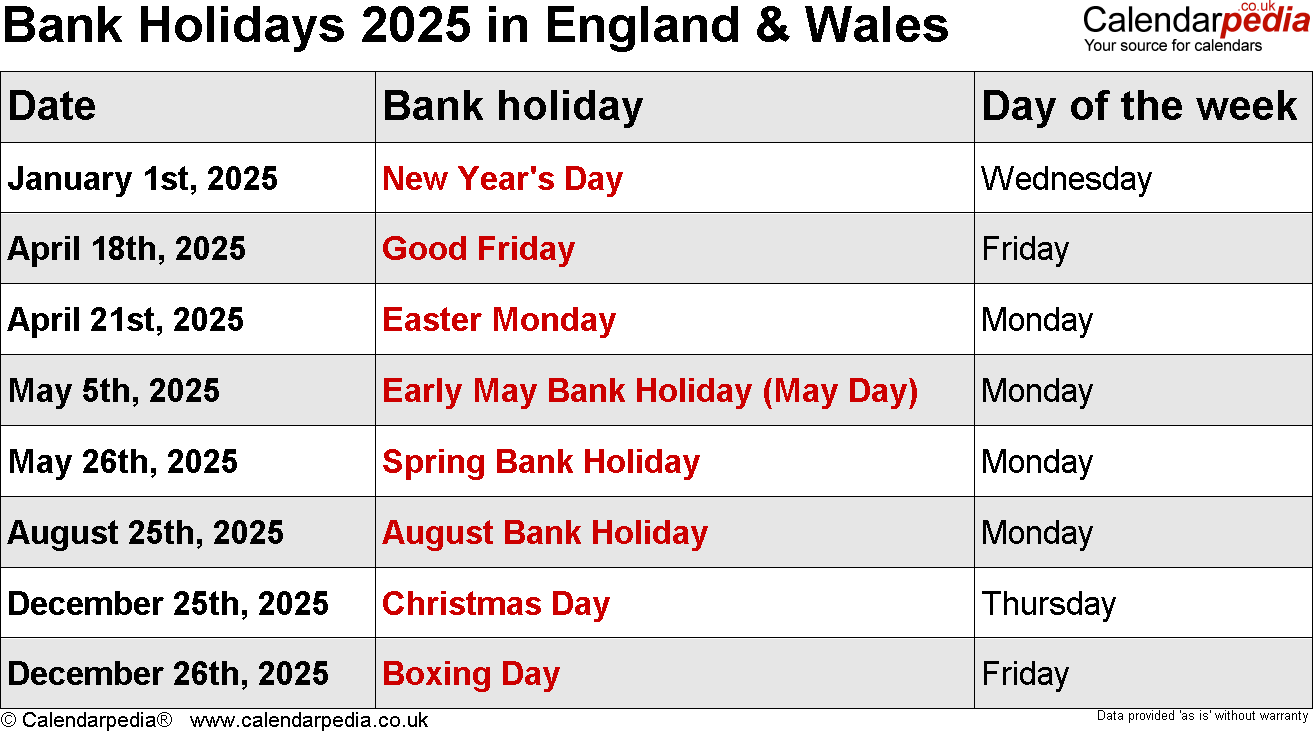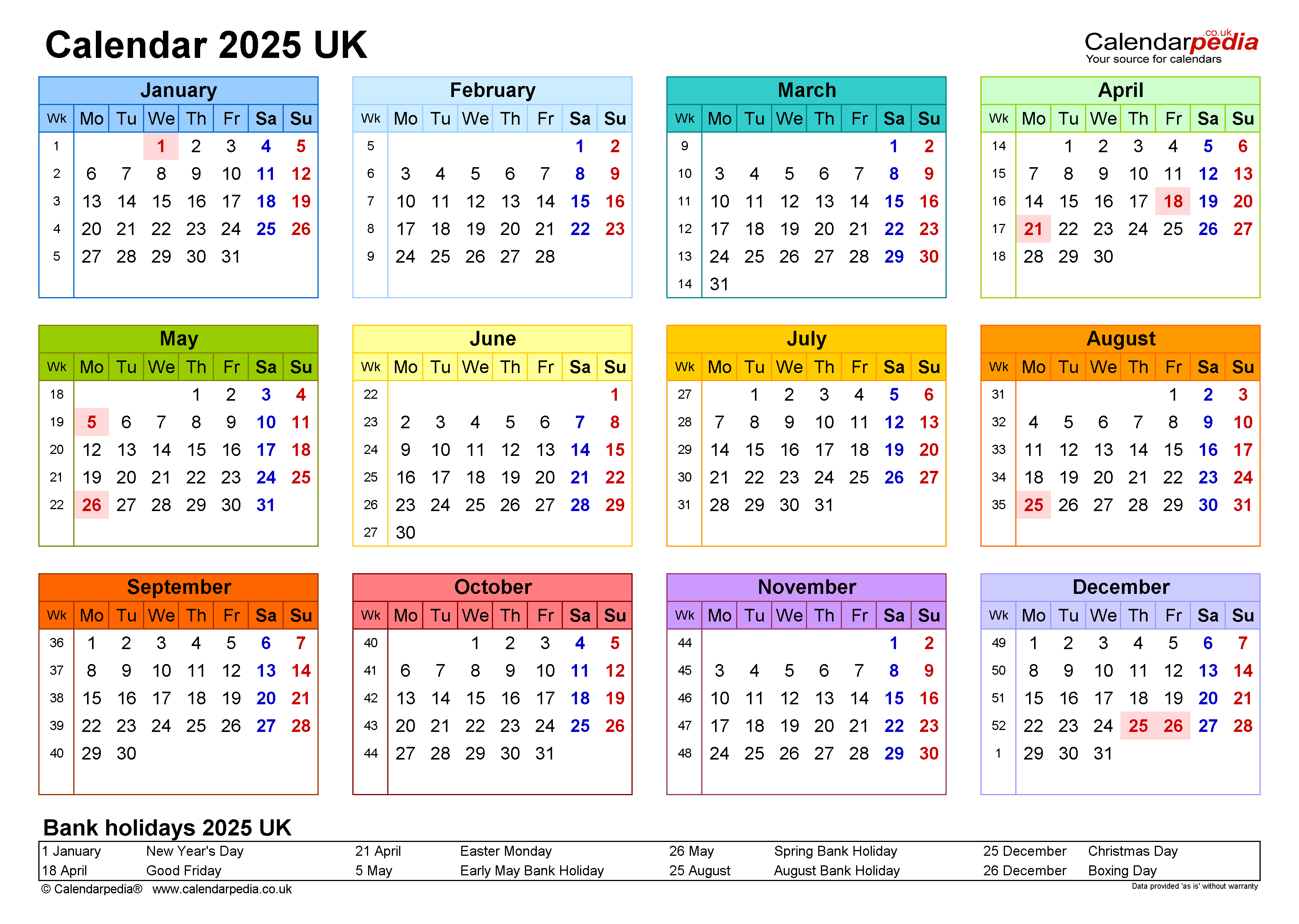Bank Holidays 2025 UK Calendar: A Comprehensive Guide to Public Holidays and Observances
Related Articles: Bank Holidays 2025 UK Calendar: A Comprehensive Guide to Public Holidays and Observances
- June 2025 Calendar Printable Blank: A Comprehensive Guide
- 2025 Federal Leave Calendar: A Comprehensive Guide For Employees
- 2025 Ecuadorian Liga Pro Calendar: A Comprehensive Guide
- January 2025 Calendar To Print: A Comprehensive Overview
- August 2025 Calendar With Reminders
Introduction
In this auspicious occasion, we are delighted to delve into the intriguing topic related to Bank Holidays 2025 UK Calendar: A Comprehensive Guide to Public Holidays and Observances. Let’s weave interesting information and offer fresh perspectives to the readers.
Table of Content
Video about Bank Holidays 2025 UK Calendar: A Comprehensive Guide to Public Holidays and Observances
Bank Holidays 2025 UK Calendar: A Comprehensive Guide to Public Holidays and Observances

The United Kingdom observes a number of bank holidays throughout the year, providing welcome respites from work and opportunities to relax, celebrate, and commemorate important events. In 2025, there will be eight bank holidays in total, spread across the year. This article serves as a comprehensive guide to these bank holidays, providing details on their dates, origins, and significance.
1. New Year’s Day (Thursday, 1st January)
New Year’s Day marks the beginning of a new calendar year and is a day of celebration and reflection. It is a time to bid farewell to the old year and welcome the new with hope and anticipation. In the UK, New Year’s Day is a bank holiday, giving people a day off to enjoy the festivities and spend time with loved ones.
2. Good Friday (Friday, 11th April)
Good Friday is a Christian holiday that commemorates the crucifixion of Jesus Christ. It is observed on the Friday before Easter Sunday and is a day of mourning and reflection for many Christians. In the UK, Good Friday is a bank holiday, allowing people to attend church services or spend time in contemplation.
3. Easter Monday (Monday, 14th April)
Easter Monday is the day after Easter Sunday and is a public holiday in the UK. It is a day to celebrate the resurrection of Jesus Christ and is often associated with family gatherings, egg hunts, and other festive activities.
4. Early May Bank Holiday (Monday, 5th May)
The Early May Bank Holiday is a relatively new addition to the UK bank holiday calendar, having been introduced in 1978. It is observed on the first Monday in May and is a welcome break from work for many people. The holiday is often used as an opportunity for short getaways or to enjoy the spring weather.
5. Spring Bank Holiday (Monday, 26th May)
The Spring Bank Holiday is another public holiday observed in the UK on the last Monday in May. It is a day to celebrate the arrival of spring and is often associated with outdoor activities such as picnics, walks, and gardening.
6. Summer Bank Holiday (Monday, 25th August)
The Summer Bank Holiday is the last of the three traditional bank holidays observed in the UK. It is celebrated on the last Monday in August and marks the unofficial end of the summer season. Many people use the holiday as an opportunity to enjoy the remaining warm weather or to prepare for the start of the new school year.
7. Christmas Day (Thursday, 25th December)
Christmas Day is a Christian holiday that celebrates the birth of Jesus Christ. It is a day of joy, family gatherings, and gift-giving. In the UK, Christmas Day is a bank holiday, giving people a day off to spend with their loved ones and enjoy the festive atmosphere.
8. Boxing Day (Friday, 26th December)
Boxing Day is a public holiday observed in the UK on the day after Christmas Day. It is a day for relaxation, sports events, and spending time with family and friends. The origins of Boxing Day are unclear, but it is believed to have originated as a day for giving gifts to the poor and disadvantaged.
Additional Public Holidays in Scotland
In addition to the eight bank holidays observed throughout the UK, Scotland has two additional public holidays:
- New Year’s Day (2nd January): This is a public holiday in Scotland only and is known as "wee New Year." It is a day for visiting friends and family and enjoying traditional Scottish food and drink.
- St. Andrew’s Day (30th November): This is a public holiday in Scotland that celebrates the patron saint of Scotland, St. Andrew. It is a day for celebrating Scottish culture and heritage, with many towns and cities hosting parades and other festive events.
Observances
In addition to bank holidays, there are a number of other observances throughout the year that are not public holidays but are still significant to many people in the UK. These include:
- Valentine’s Day (14th February): A day for celebrating love and romance.
- Mother’s Day (14th March): A day for honoring mothers and celebrating motherhood.
- Father’s Day (15th June): A day for honoring fathers and celebrating fatherhood.
- Halloween (31st October): A day associated with ghosts, witches, and other spooky things.
- Remembrance Day (11th November): A day for remembering those who have served and died in the armed forces.
These observances are not public holidays, but they are still widely celebrated in the UK and often involve special events and activities.
Conclusion
Bank holidays in the UK provide welcome respites from work and opportunities to relax, celebrate, and commemorate important events. In 2025, there will be eight bank holidays in total, spread across the year, offering plenty of opportunities for people to take a break from their daily routines and enjoy the festivities. Whether it’s celebrating the new year, commemorating the crucifixion of Jesus Christ, or simply enjoying the arrival of spring, bank holidays are an integral part of the UK calendar and provide a much-needed break from the hustle and bustle of everyday life.








Closure
Thus, we hope this article has provided valuable insights into Bank Holidays 2025 UK Calendar: A Comprehensive Guide to Public Holidays and Observances. We hope you find this article informative and beneficial. See you in our next article!